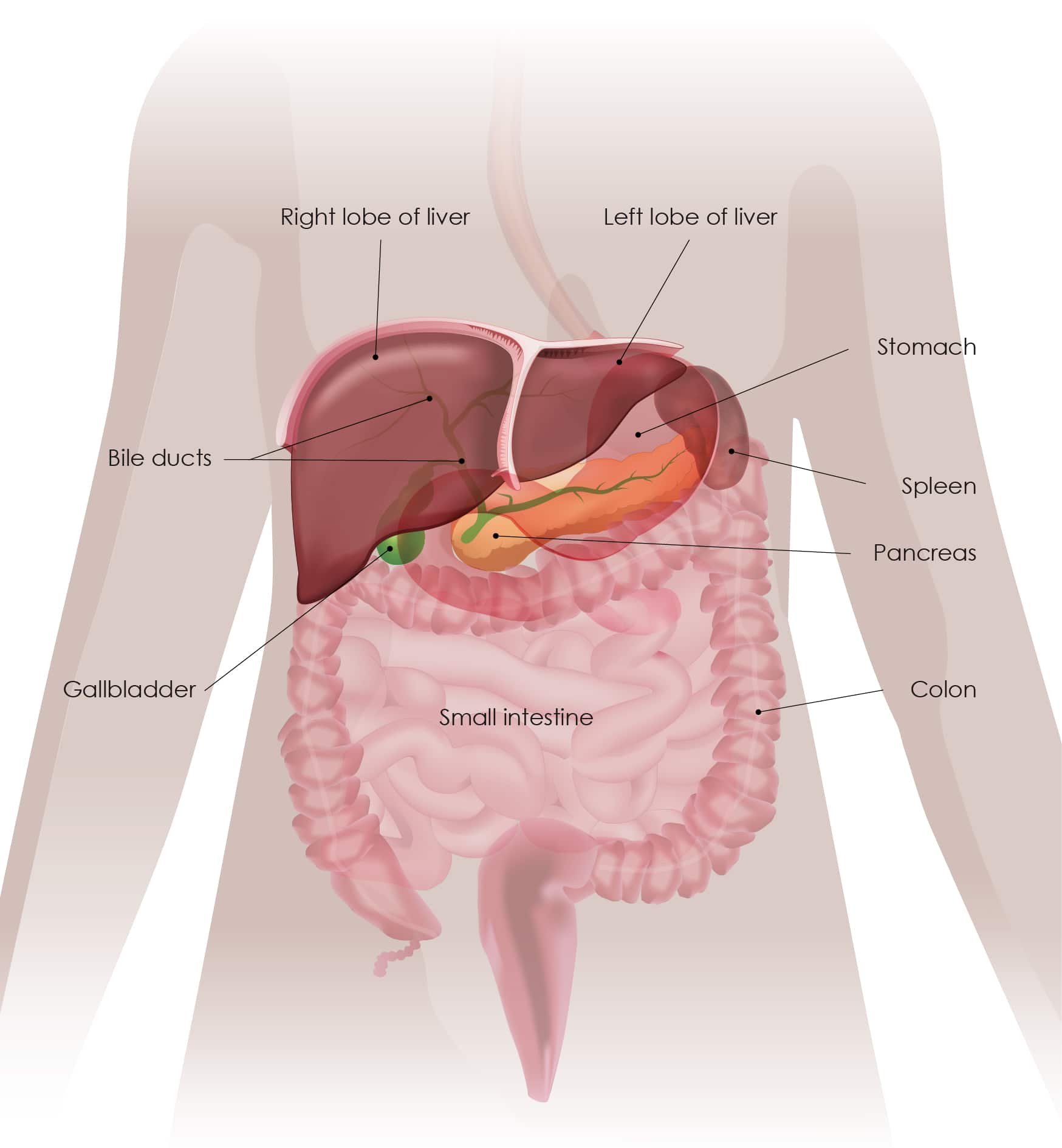
Liver Cancer
What is Liver Cancer?
Primary Liver Cancer
Primary Liver Cancer is cancer that started in the liver.
It is the sixth most commonly diagnosed cancer in the world, with around 841 000 cases worldwide in 2018. In Europe, approximately 90 000 people are diagnosed with liver cancer each year (2020 Data from ECIS). It is more common in men than in women.
About the Liver
The liver is the largest internal organ. It has two lobes (sections). The gallbladder sits under the liver, along with parts of the pancreas and intestines. The liver and these organs work together to digest, absorb, and process food.
The liver has many important functions, including taking toxins and other harmful substances from the blood and breaking them down into safer forms. The liver also takes useful substances from the blood and stores them, including sugars, vitamins, minerals and amino acids.
Types of Liver Cancer
There is more than one kind of primary liver cancer:
- Hepatocellular carcinoma (HCC). This is the most common form of liver cancer in adults. Around 90% of all liver cancers are HCCs.
- Intrahepatic cholangiocarcinoma (otherwise known as bile duct cancer). About 10% to 20% of primary liver cancers are intrahepatic cholangiocarcinomas. These cancers start in the cells that line the small bile ducts (tubes that carry bile to the gallbladder) within the liver.
- Angiosarcoma and hemangiosarcoma. These are rare cancers that begin in cells lining the blood vessels of the liver.
Please note, the information in this section is mainly about HCC.
Secondary liver cancer
Often, when cancer is found in the liver, it did not start there but has spread (metastasized) from somewhere else in the body. This is called a secondary liver cancer. These tumours are named and treated based on where they started (e.g. pancreas, colon, lung etc.)


